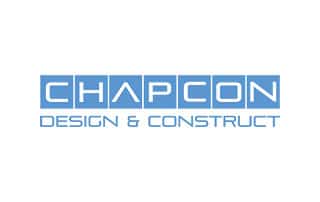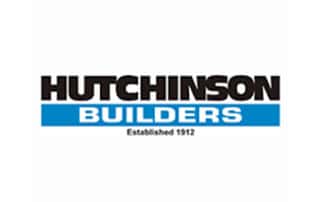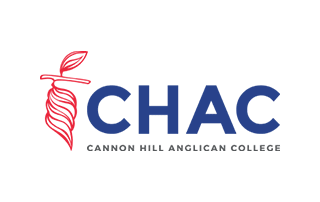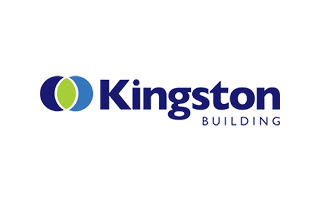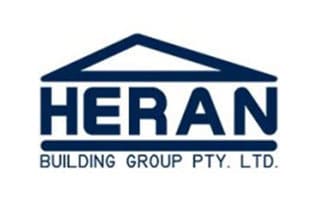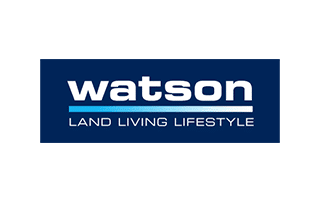Navigating the maze of town planning in Queensland can feel like deciphering an ancient scroll – complex, time-consuming, and occasionally mystifying.
Yet, it’s a crucial step for anyone looking to develop property, from small residential extensions to large commercial projects.
Understanding the financial landscape of town planning is not just about counting costs; it’s about investing in the smooth progression of your project from concept to a brick-and-mortar reality.
In this guide, we’ll cover:
- Factors affecting town planning costs
- A breakdown of town planning costs
- Cost saving strategies
- How to choose the best service planner
The process of seeking approval for land development involves a multitude of steps, each with its own set of fees, from consultancy charges to application fees and contributions to local infrastructure.
These costs vary depending on the scope of your project, the specific requirements of the local council, and your consultant’s level of expertise. It’s a field where expertise can save you not just thousands of dollars but countless hours of time and stress.
This article aims to shed light on the average costs associated with town planning in Queensland, including insights and budgeting tips. We’ll delve into the various components that contribute to town planning costs, including council fees, consultancy charges, and other potential outlays.
Our goal is to equip you with the knowledge required to navigate this process efficiently, highlighting how our expertise can help you manage your project budget effectively.
BPLANNED & SURVEYED SUMMARY:
|
Factors Affecting Town Planning Costs in Queensland
Understanding the following key factors will help you better prepare for the financial aspects of your development journey.
1. Scope and Complexity of the Project
The scale and intricacy of your project play a pivotal role in determining town planning costs. A simple residential extension, for instance, will generally incur lower fees than a multi-stage commercial development.
Projects requiring detailed impact assessments, community consultations, or extensive environmental studies will naturally demand more resources, leading to higher costs.
2. Local Council Requirements
Each local council in Queensland has its own set of regulations, fees, and contribution schemes for development projects. These can significantly affect the overall cost.
Application fees, infrastructure charges, and other levies vary from one council to another, reflecting local priorities and planning strategies. As such, familiarity with specific council requirements will help you budget accordingly.
3. Consultancy Fees
Professional consultancy fees constitute a major portion of town planning costs. Although engaging a seasoned town planner can streamline the approval process, their expertise comes at a price.
The cost of consultancy services varies depending on the complexity of the project, the reputation and experience of the consultant, and the depth of services provided, from initial advice to full project management.
4. Additional Studies and Reports
Depending on the nature of your project and location, you may need to commission specific studies or reports to support your application. These can include traffic impact assessments, environmental studies, heritage reports, and more.
The need for such reports is determined by local council requirements and the potential impact of your development on the surrounding landscape.
5. Public Notification and Community Consultation
For certain types of developments, particularly those that could have a significant impact on the community or environment, public notification and community consultation processes are mandatory.
These steps ensure transparency and give community members a chance to voice their concerns or support. Community consultation costs can vary, including advertising fees and costs associated with managing public submissions.
A Quick Guide to Town Planning Costs in Queensland
To help you navigate the financial aspects, we’ve compiled a breakdown of the cost of common components involved in the process.
Note: these figures are indicative and can vary based on the specifics of your project and current rates at the time of development.
| Component | Cost Range (AUD) |
| Council Application Fees | $500 – $10,000+ |
| Infrastructure Charges | $10,000 – $100,000+ |
| Professional Consultancy Fees | $3,000 – $50,000+ |
| Specific Studies and Reports | $2,000 – $20,000+ per study |
| Public Notification Fees | $500 – $2,500 |
| Community Consultation Costs | $1,000 – $5,000+ |
Council Application Fees
These fees vary significantly depending on the type of application and the local council. Smaller projects might be at the lower end of the scale, while larger, more complex developments will incur higher fees.
Infrastructure Charges
These charges are levied by the council to cover the cost of providing infrastructure to support your development. The cost depends on the scale of the project and the existing infrastructure capacity.
Professional Consultancy Fees
Hiring a town planner can expedite your application process and increase the likelihood of approval. Fees depend on project complexity and consultant expertise.
Specific Studies and Reports
Costs incurred for projects that require detailed assessments, such as traffic impact or environmental studies, can quickly add up. Each study or report required will add to your overall budget.
Public Notification Fees
Public notification applications, including fees, are required by the council for certain types of projects.
Community Consultation Costs
If your project requires engagement with the community beyond the standard notification process, associated costs may include meetings, presentations, and feedback collection efforts.
Keep in mind that these costs fluctuate. For this reason, obtaining a detailed quote from professionals in your project field is crucial for accurate financial planning.
Cost-Saving Strategies for Town Planning in Queensland
With strategic planning and a few smart moves, it’s possible to save significantly and avoid unnecessary expenses.
Here are some cost-saving tips and preventive measures that will keep your budget in check.
Start with Detailed Research
Before diving into the development process, conduct thorough research on your local council’s planning schemes, regulations, and fees.
Understanding these elements upfront will help you anticipate costs so you can design your project to comply with local standards, avoiding costly revisions later.
Engage a Professional Early On
Hiring a planning consultant at the early stages of your project may seem like an unnecessary expense, but their expertise will save you time and money in the long run.
These consultants will help you develop a cost-effective approach to achieve approval and help you navigate the complex regulatory landscape, all while avoiding pitfalls.
Opt for Pre-lodgement Meetings
The Office of the Coordinator-General (OCG) offers pre-lodgement meetings, where you can discuss your project with a planner before submitting your application.
These meetings provide insight into potential issues or compliance matters, allowing you to address them before incurring the costs of a formal application.
Streamline Your Design
Design your project with compliance in mind. More complex designs often require additional reports and studies, which can escalate costs. By keeping your design straightforward and within local guidelines, you can minimise the need for expensive modifications and supplementary documentation.
Consolidate Reports and Studies
If your project requires specific studies or reports, try and engage consultants who can handle multiple assessments.
Consolidating these tasks will not only streamline the process but potentially reduce the overall costs compared to hiring separate specialists for each report.
Utilise Publicly Available Resources
Take advantage of any publicly available data, such as environmental studies, traffic assessments, or community plans conducted by the local council or state government.
These resources can sometimes be used to support your application without the need for new, costly studies.
Monitor Application Progress and Respond Promptly
Once your application is lodged, stay on top of its progress. Prompt responses to council queries and requests for additional information can help avoid delays.
Time is money, and unnecessary extensions to the approval process will quickly add up.
Smart planning, early professional engagement, and a focus on compliance can significantly reduce financial strain, allowing you to allocate resources where they’re needed most.
Selecting a Stellar Town Planning Consultant
A reputable planning consultant can be the difference between a smooth approval process and a costly, drawn-out ordeal. Here’s what to consider when selecting a partner.
Look for Experience and Expertise
A consultant with extensive experience across Queensland’s landscape will have a deep understanding of local regulations, council expectations, and common pitfalls.
Look for a firm with a proven track record of similar projects and ensure they have the expertise to handle your specific needs.
Look Into Their Reputation and References
A reputable company should come highly recommended. Don’t hesitate to ask for references and case studies from previous projects.
Feedback from past clients provides valuable insight into a consultant’s reliability, effectiveness, and the quality of their communication and service.
Evaluate Their Communication Skills
The ability to communicate clearly and efficiently with clients, council staff, and other stakeholders is crucial. Your consultant should be able to explain complex regulations in simple terms and keep you informed throughout the process.
Initial interactions should give you a good sense of their communication style and responsiveness.
Assess Their Network and Resources
A well-connected town planner can facilitate smoother interactions with councils and access a network of other professionals (such as architects, engineers, and environmental consultants) who can contribute to your project.
Assessing the breadth of their network and resources gives you an idea of how well-equipped they are to handle your application.
Understand Their Fee Structure
Transparency in billing and a clear understanding of fee structures are essential. Look for a service provider who offers detailed quotes and can explain the costs associated with your project.
Avoid any consultants who are vague about fees or seem to offer unrealistically low quotes, as this could indicate hidden costs down the line.
Gauge Their Commitment to Your Project
Finally, choose a consultant who demonstrates a genuine interest in the success of your project.
A company that asks detailed questions about your objectives and shows a commitment to achieving the best possible outcome is likely to provide the dedicated service you need.
By focusing on experience, reputation, communication, network, transparency in fees, and commitment, you can find a service provider that not only meets your needs but also adds value to your development project.
Wrapping Up: Your Blueprint to Budgeting for Town Planning in Queensland
Let’s recap the crucial points to keep your project moving forward without financial hiccups:
- Understanding Factors Affecting Cost: Project scope, council requirements, consultancy fees, additional studies, and community consultation processes all play significant roles in shaping your budget.
- Budget Wisely with Cost Ranges: Be prepared for council application fees, infrastructure charges, professional consultancy fees, specific studies, public notification, and community consultation costs.
- Implement Cost-Saving Strategies: Engage in detailed research, early professional consultation, and streamlined design; utilise publicly available resources to keep expenses in check.
- Choose the Right Consultant: Look for experience, reputation, effective communication, a robust professional network, transparent fee structures, and a commitment to your project’s success.
Embarking on this venture requires careful financial planning and a clear understanding of the associated costs.
By equipping yourself with the knowledge outlined in this article, you’re taking a significant step towards ensuring your project not only meets regulatory approval but does so within a manageable budget.
If you’re ready to navigate the town planning landscape in Queensland, we’re here to guide you through every step of the process.
Schedule a consultation with us today to discuss how we can tailor our services to fit your specific needs and budget. Together, we can turn your development aspirations into reality–efficiently and cost-effectively.
Ready to Take the Next Step? Contact bplanned & surveyed
Embarking on your development journey in Queensland can be a complex process, laden with potential financial and regulatory pitfalls.
At bplanned & surveyed, we specialise in demystifying the process, offering tailored advice and strategic planning solutions to fit your unique project requirements.
Whether you’re at the concept stage, knee-deep in planning, or anywhere in between, our team of experienced professionals is ready to provide the support you need.
Don’t let the complexities of town planning hold your project back. Contact bplanned & surveyed today for personalised advice or a detailed quote. We’re committed to your success, providing clarity, efficiency, and expert guidance every step of the way.








